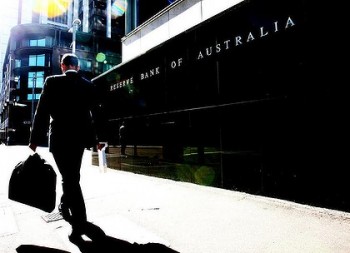
The Economic Scene, according to the RBA
Following the September Board meeting, the Governor of the Reserve Bank of Australia (RBA) has provided a very thoughtful perspective of the Australian economy and the RBA’s view on asset prices. It’s well worth a read.
There are two points worthy of special mention;
You might recall we’ve penned a number of blog posts (see here, here and here) that discuss US Federal Reserve’s preference for supporting economic growth rather than containing asset prices.
In Australia however, it seems our central bank is more cautious and less circumspect about asset inflation. The following passage is from the Governor’s Address to CEDA Luncheon:
With that said, it seems like the RBA does not consider that asset prices are too expensive to warrant an increase in interest rates just yet. The RBA has acknowledged that the interest rate policy has been very accommodative for a considerable period, but also notes that this has created an environment of stability and predictability. This suggests that it may be some time before interest rates change, and that any interest rate increase will be well-flagged.
The Governor has also provided further detail regarding the sectors of the economy which are likely to contribute to economic growth. The RBA does not consider that households are likely to increase their consumption spending above their income, while Government spending is expected to remain subdued if the focus remains on balance sheet strengthening.
As such, the RBA considers that businesses are in the best position to drive economic growth. The RBA considers that businesses have been increasing cash holdings and that leverage is relatively low. In some areas outside of mining the level of gross fixed capital spending is barely above depreciation rates, while there are signs that innovation is occurring. The RBA is not calling on businesses to play a greater role in driving economic growth, it is simply considering that conditions may be favourable for capacity expansion.
This post was contributed by a representative of Montgomery Investment Management Pty Limited (AFSL No. 354564). The principal purpose of this post is to provide factual information and not provide financial product advice. Additionally, the information provided is not intended to provide any recommendation or opinion about any financial product. Any commentary and statements of opinion however may contain general advice only that is prepared without taking into account your personal objectives, financial circumstances or needs. Because of this, before acting on any of the information provided, you should always consider its appropriateness in light of your personal objectives, financial circumstances and needs and should consider seeking independent advice from a financial advisor if necessary before making any decisions. This post specifically excludes personal advice.
INVEST WITH MONTGOMERY
Aaron Somner
:
A very interesting point that may be glossed over is the comment that governor Stevens makes about a prudent approach to try to avoid the boom-bust cycle so far as we can. He is admiting that there is a boom-bust cycle that he can only dampen the amplitude of. I think this highlights the fact that we have one of the most practical and responsible central bank governors in the world. But what then must be considered is where is the concentration of capital going to occur on this boom-bust cycle. The last cycle was US real estate and the MBS’s leavereged off them. The boom before that was in the Nazdaq. Before that capital concentrated into SE asia into 94 with the asian currency crises following. That was after capital concentrated into Japan and we all know how that has unfolded. So the question that remains is where is capital concentrating on this boom-bust cycle. Well governor Stevens provided a chart of Euro bond yields that gives us that answer. As those yields fall obviously bond prices are rising! This forms capital creation and a speculative boom no different to a commodities boom. Anyone pondering this should consider the fact that on Monday German 6 month treasury bills had a NEGATIVE yield of 0.0934%. So ïnvestors”are paying the German government to hold their money for 6 months. Hello negative interest rates! Another way of looking at it is would the Montgomery fund invest in a negative yielding instrument? I can here Rogers teeth grinding at the thought! This occurring while another chart of Euro growth showed a flat line at best during a period where government debt is rising! The spike high in Euroland bonds on that chart is clearly a warning shot across the bow for all of us. When capital disperses from this area after it has finished concentrating,we will witness rising interest rates on debt that is unsustainable. Euroland allready has broad unemployment at around 12% and youth unemployment at over 50% in some countries. Where exactly will their tax reciepts come from? So I feel comfort in the knowledge that we have Govenor Stevens at the helm and that he has retained his sense of humour by stating this week that he became an economist because he did not have the personallity to become an accountant!
Roger Montgomery
:
Nice summary Aaron. Thank You.
garry howlett
:
And whilst public company’s raise dividends to appease the yield hungry market, the company spend will shrink further, thus contributing less to economic growth, which will likely flow on to lower company growth in the future. Vicious circle??
Roger Montgomery
:
Indeed! And it’s logical.